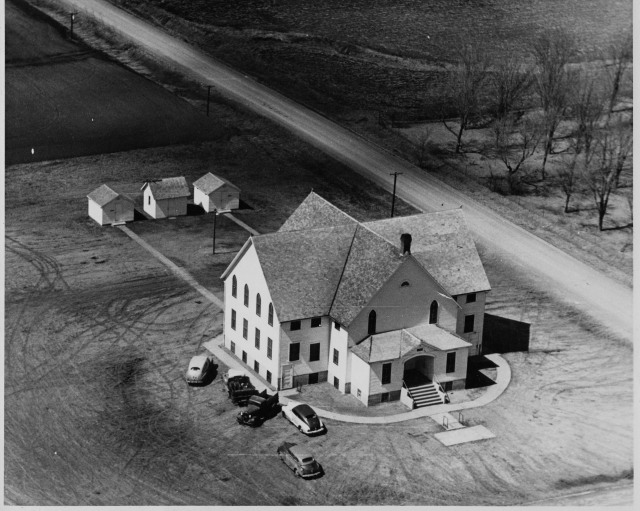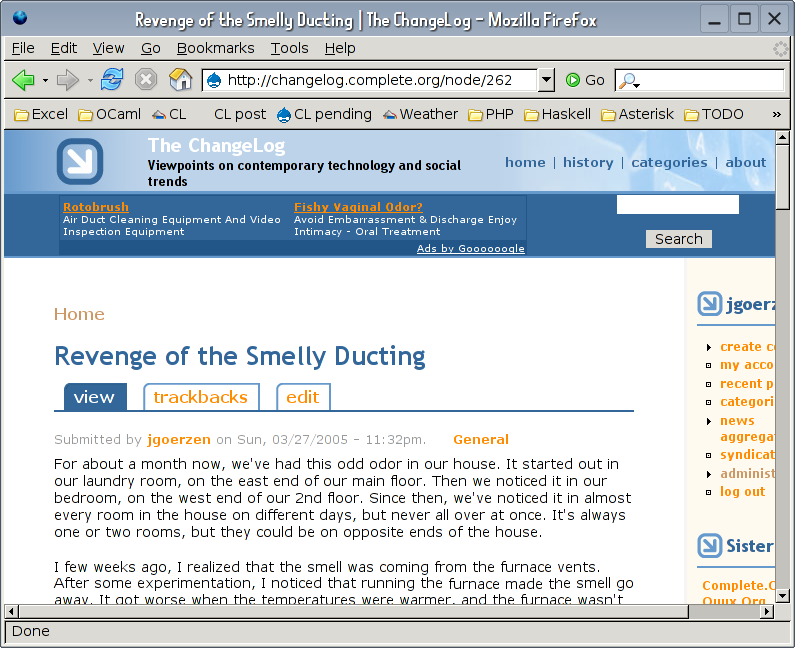So I am on the Tabor Mennonite Church centennial committee (coming right up in 2008!).
We’ve been going through the church archives, and I’ve been scanning in interesting photos. Here’s one, taken about 1950.

This is a photo of the original 1908 Tabor Church building, as remodeled in the 1930s.
You’ll notice the front door, the many windows.
And the two well-worn paths out back.
They are leading to the two outhouses. If I understand correctly, they continued to be used up until the mid-1960s when the “new” (present) church building was constructed.
The building in the middle housed a Delco Light Plant (generator), which was used until rural electrification provided power to the church.
So yes, this church had its own on-site generator, decades before it got indoor plumbing.
There’s a joke in there somewhere but it’s late and somehow I can’t come up with a good one. Feel free to post your own ;-)

